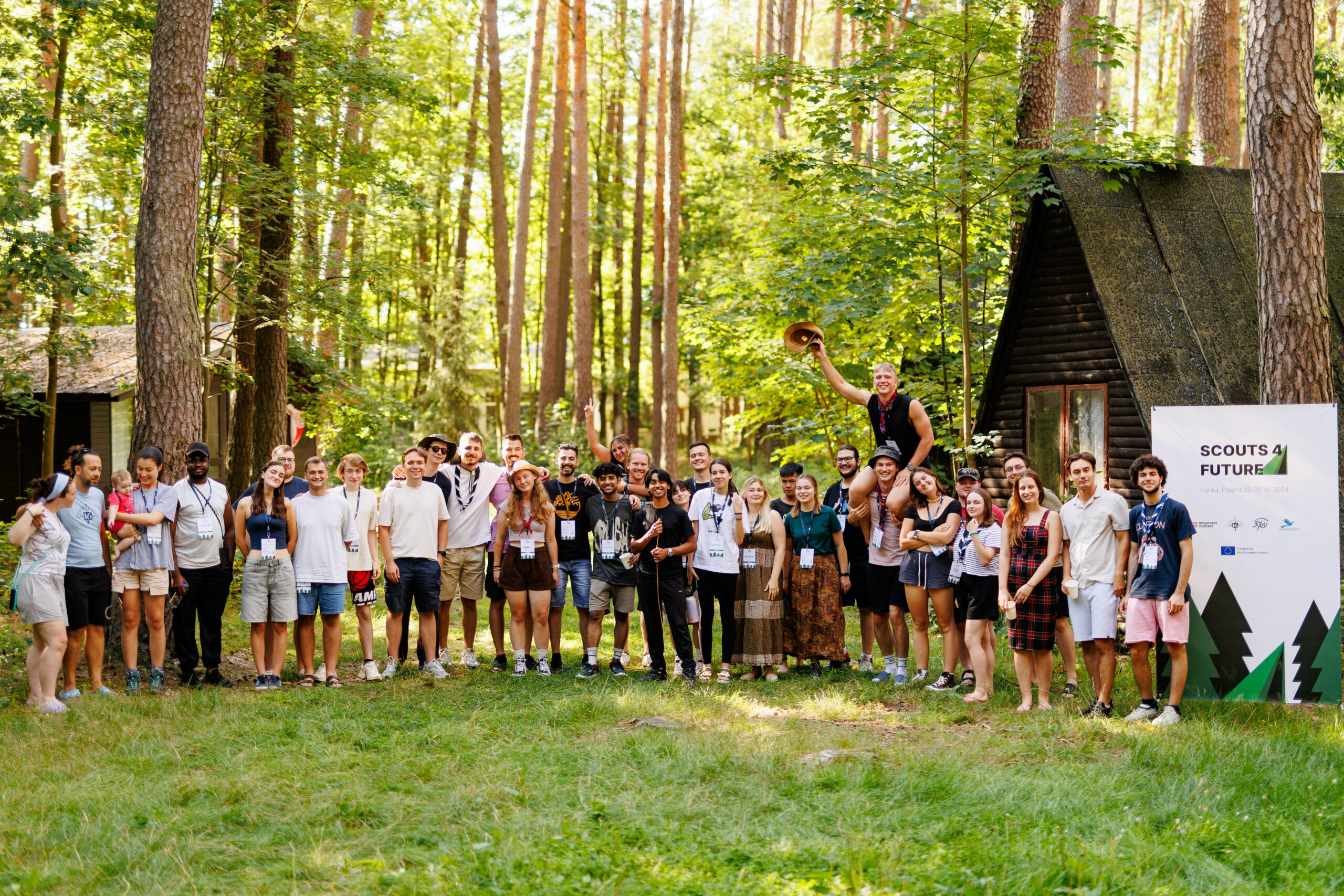The main goal of the project was to create a space for integration, exchange of experience and creative cooperation (primarily in the creation of the main effect of the exchange, i.e. program proposals for scout teams in different organizations) between scouts from different European countries.
The project was a unique opportunity to learn about the methods and forms of work used by scout organizations in different countries. This will enable participants to implement them in their own communities. We wanted young scouts to have the opportunity to meet their friends from other European countries and learn about the history, traditions and forms of work of other scout organizations. The project activities allowed them to see what they had in common and what was different. Thanks to the exchange, the participating people were able to share knowledge and experience, as well as acquire new valuable competencies. In addition, they learned new methods of scouting work and non-formal education.
From the very first days, participants had the opportunity to get to know each other better during the integration sessions. Through various games and group exercises, both national and international, young people shared their passions, interests, and perspectives on the world. This created a solid foundation for further collaboration and lasting friendships.
The following days were dedicated to thematic blocks, where participants explored both scouting-related topics and personal skill development. During the knowledge block, each national group presented the history, traditions, and working methods of scouting in their country. An interactive museum exhibition was even created, followed by field games that introduced participants to the intricacies of scouting rituals.
The skills block provided hands-on learning opportunities. Workshops organized by different groups covered topics such as first aid, campfire cooking, and survival in the forest. It was not only an opportunity to learn but also to engage in teamwork and share experiences.
There was also time for relaxation and connecting with nature. The outdoor activity block included kayaking trips, hiking excursions, and recreational activities such as cycling and lakeside games. In the evenings, campfires, karaoke, board games, and national nights were organized, during which participants showcased their cultures, dances, and traditional snacks.
The final days of the exchange were dedicated to community service. As part of the volunteering block, participants worked together on initiatives that benefited the local community, embodying the scouting principle of "service to others."
The project was not only an opportunity to gain new skills and experiences but also a chance to form international connections, learn about different cultures, and foster a sense of community and solidarity. This event will remain in participants' memories as a testament to how scouting values can bring people together across borders.

